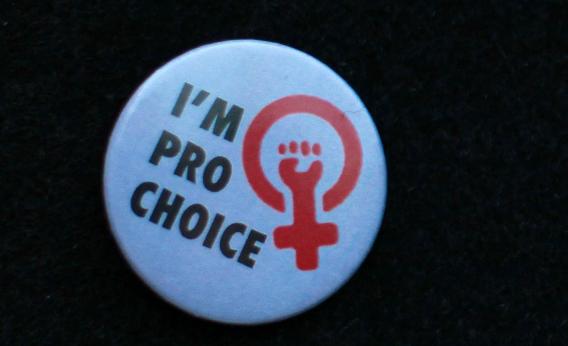Anna North at BuzzFeed reports on newly released Planned Parenthood data showing that many people are uncomfortable with the labels “pro-choice” and “pro-life,” research that Planned Parenthood says has convinced them to stop using these kinds of labels altogether. What’s irritating about this decision is that, in Planned Parenthood’s focus groups, people who are, in fact, pro-choice run away from the term:
“I’m neither pro-choice nor pro-life,” said one woman in a focus group commissioned by Planned Parenthood. “I’m pro-whatever-the-situation is.” Said another, “there should be three: pro-life, pro-choice and something in the middle that helps people understand circumstances […] It’s not just back or white, there’s grey.”
The correct term for people who want abortion to be decided on a case-by-case basis is pro-choice, unless, of course, these focus-group participants imagine a panel to which each woman has to make her case in order to determine if she’s a good enough girl to avoid punishment by forced childbirth. (Sadly, such panels did exist in the era before Roe v. Wade and subjected women to the humiliation of having to beg for abortions to a commission of men who strongly believed they knew best what a woman needed.) But if the women mean, as I suspect they do, that they are not pro-abortion but rather pro- a woman being able to make her decision based on her circumstances, that is the very definition of pro-choice. (Many, many women who for years have labeled themselves as pro-choice are, at the same time, in favor of creating circumstances that will decrease the number of abortions. I don’t know anyone who actually cheers when an abortion is completed.)
I wish that instead of using this information to abandon the term pro-choice, Planned Parenthood would try to get focus-group participants to clarify how their vague feelings should translate into policy, though the inefficacy of that strategy is reason enough to avoid it.
The reason that pollsters routinely get such weird and conflicting answers about abortion rights (for instance, Gallup’s polling shows that significant numbers of people who identify as “pro-life” want abortion to be legal) is because abortion rights are our culture’s shorthand for attitudes about sexuality and women’s roles, which Americans are ever conflicted about. Women are expected to be sexy and sexually skilled, but there’s still a lot of negativity aimed at women who are perceived as liking sex too much. Women long to be independent and strong, yet there’s still a fear that you’re a bad woman if you don’t subsume your identity into marriage and child-rearing. When you mention abortion to people, it brings up an overload of fears and desires and expectations around sex and gender roles, and in that mish-mash, getting clear thinking about health care policy is hard to do. That’s why women who are clearly pro-choice shy away from the term. It has little to do with its denotation—which is that some believe that the choice of when to give birth rests with a woman and her doctor and not the state—and everything do with the connotations that have been attached to it.
I can see why Planned Parenthood might want to shed the term in order to get these conflicted people to realize they are on Planned Parenthood’s side. But I’m afraid that the desire to go label-free is doomed to fail. I’m not going to start writing pieces where I describe pro-choice organizations as pro-whatever-the-situation-is organizations or help-people-understand-the-circumstances organizations. Labels are simply part of language, and shorthand rhetoric is part of the political debate. As long as abortion is a contested issue, there’s no opting out of that.
The only real choice you have is to label yourself or let others do it for you, and of those two options, smart folks will pick the former every time. Pro-choice has its drawbacks, but at least it’s accurate.
